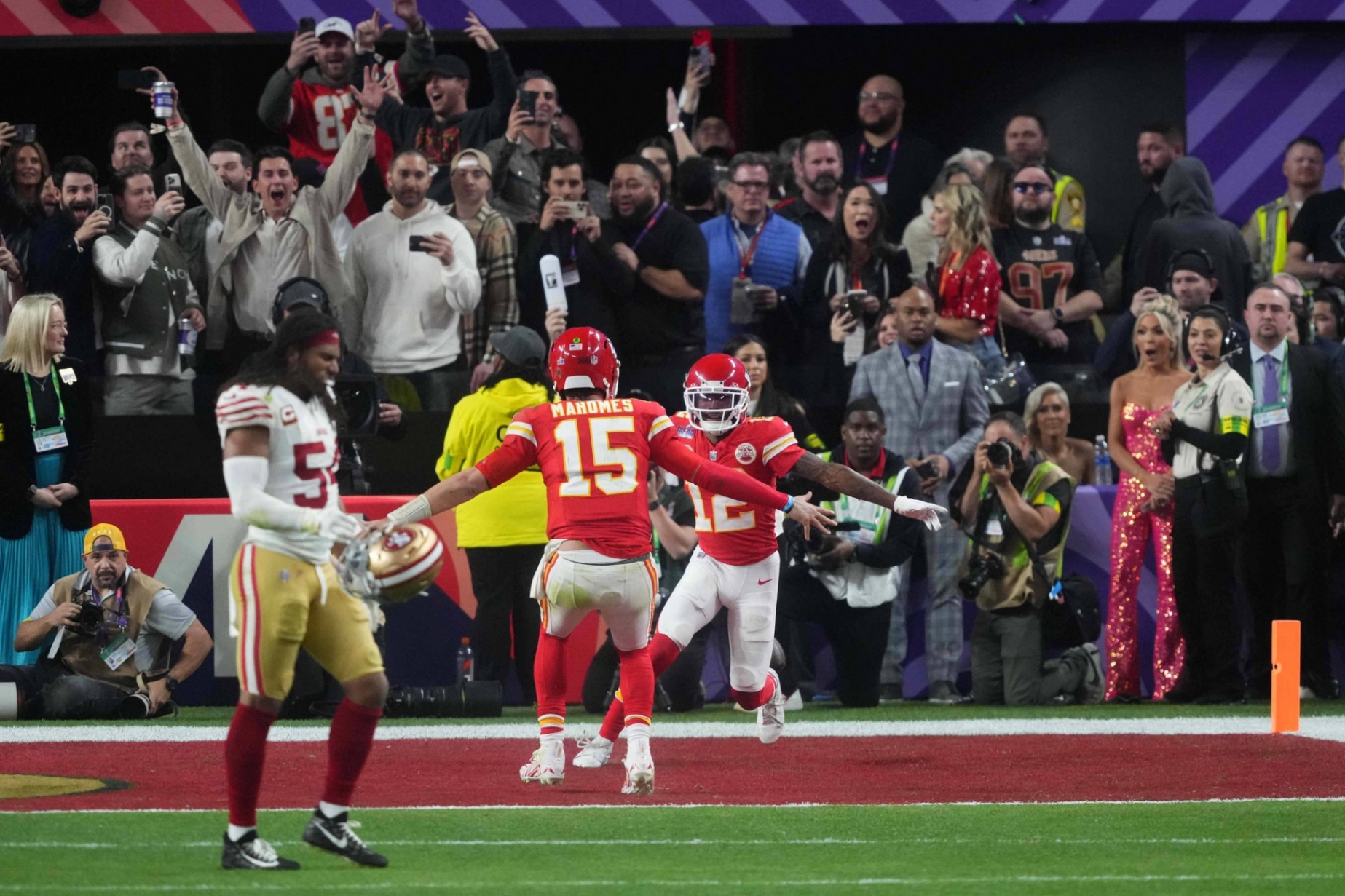
NFL rules and officiating have been hot topics as the Kansas City Chiefs and Philadelphia Eagles prepare to play in Super Bowl LIX on Sunday, Feb. 9.
It wasn’t long ago that the NFL changed its overtime rules for the postseason following a game the Chiefs played in and won. Playoff overtime rules have always slightly differed from regular season because playoff games can’t end in a tie, but these new changes ensured something that the previous rules didn’t.
So, what do you need to know about the NFL’s overtime rules should Super Bowl LIX extend past regulation?
What are the NFL’s overtime rules for Super Bowl LIX?

After the infamous 13-second game between the Chiefs and Bills in the 2022 playoffs, the NFL modified OT rules for the postseason.
The most significant change to the rules? Both teams must have the opportunity to possess the ball at least once during the extra period. If the kicking team scores a safety or defensive touchdown on the receiving team’s opening possession, they count that as a “possession.” If the score remains tied after each team gets a possession, the next score, regardless of field goal, touchdown, or safety, will determine the victor.
Here’s everything else you need to know:
- At the end of regulation, there will be a coin toss to determine which team will possess the ball first in overtime. The visiting team captain will call the toss (The Chiefs are the visitors in Super Bowl LIX).
- Each playoff overtime period lasts 15 minutes, not 10 minutes like it does in the regular season.
- A second overtime period will occur if the score is tied after the first playoff OT period or if the second team to possess a ball hasn’t completed their initial drive with a score, turnover, or turnover on downs.
- The NFL mandates a two-minute intermission between each overtime period. If more than two OT periods occur, there will not be a “halftime” intermission following the second OT period.
- A second OT coin toss will be held if no winner is declared at the end of the fourth overtime period. Play will continue until a winner is declared.
- Each team gets three timeouts in a half (overtime period).
- If the game ends in a touchdown, they’ll forego the point after try.

How many Super Bowls have gone to overtime?
Only two of the 58 prior Super Bowls have ever gone to an overtime period, and they both occurred in the last decade.
If you watched last year’s game between the Chiefs and the 49ers, you’ve seen one of those games. A Harrison Butker field goal with six seconds left in regulation tied things up at 19. The 49ers called tails on the coin toss and took the opening possession. They would strike first with a Jake Moody field goal to make the score 22-19. The Chiefs got the last laugh with a game-winning TD to Mecole Hardman, leading the team to a 25-22 victory.
The other OT game occurred in Super Bowl LI, the infamous game in which Tom Brady’s New England Patriots came back from a 28-3 scoring deficit to force overtime and defeat Matt Ryan’s Atlanta Falcons by a 34-28 score. That game occurred before the NFL’s new postseason overtime rules were implemented, which meant that when the Patriots won the coin toss, they were able to win that game with a touchdown.





